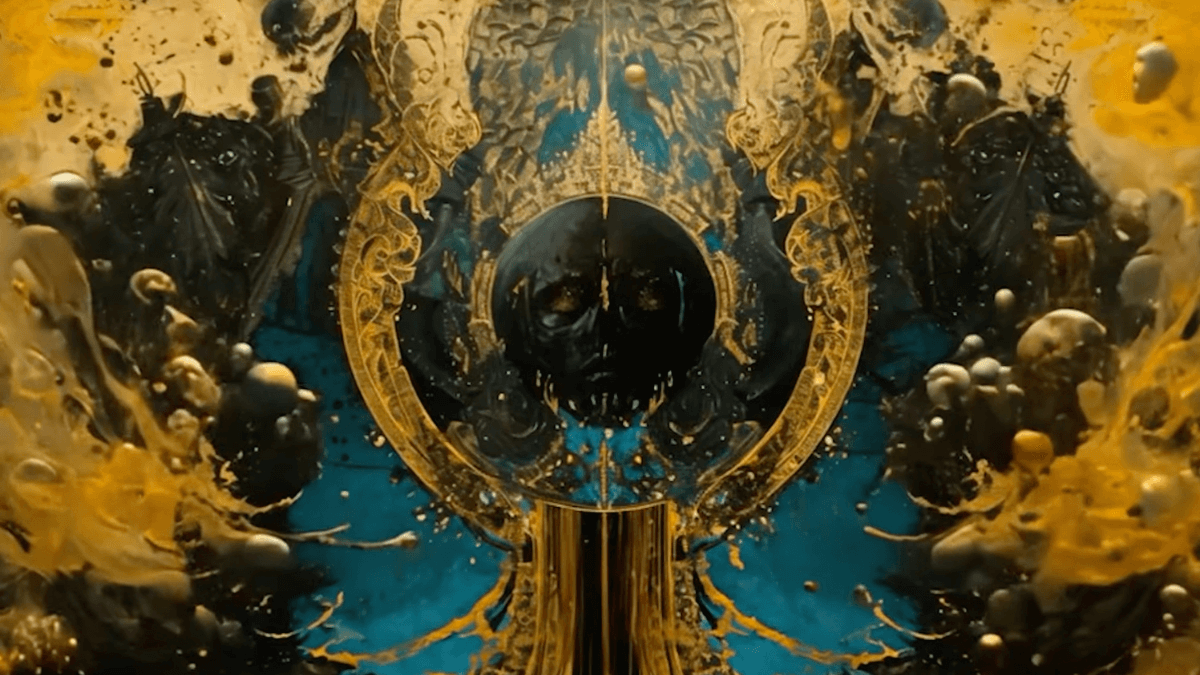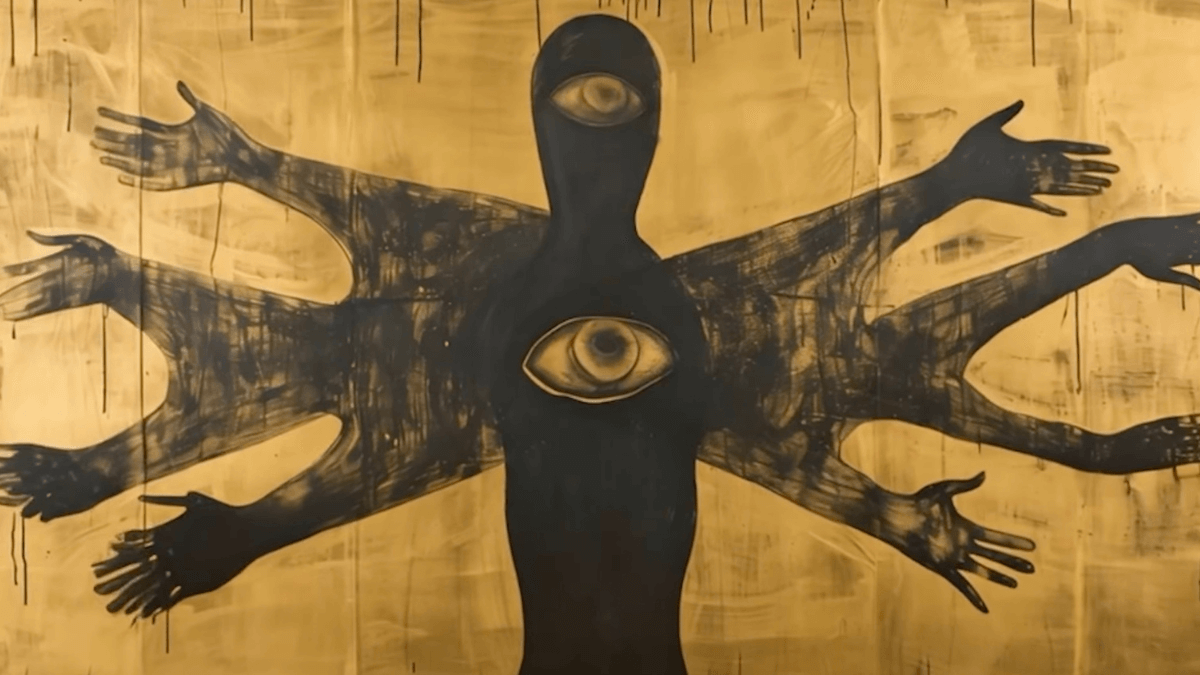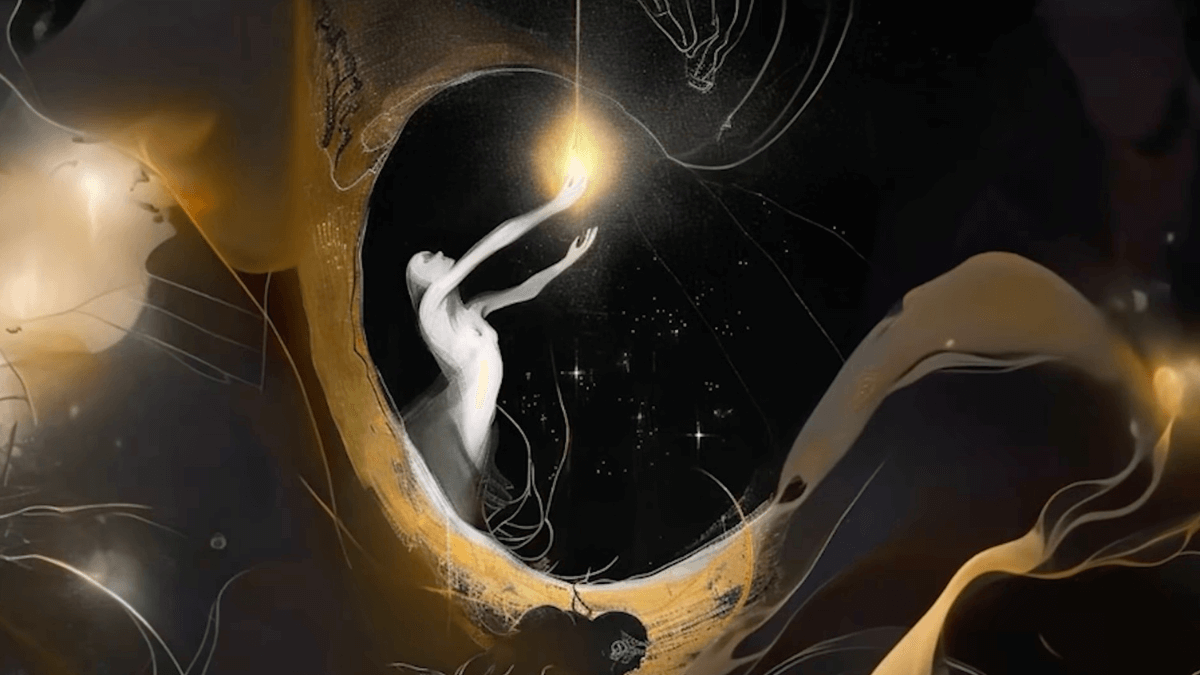If Eros teaches us anything, it is this: We did not have the illness we went to the hospital for. It shows us that most of our lives have been spent misdiagnosing our condition and, as a result, taking “medication” that at best is ineffective and, at worst, more harmful than the perceived problem.
We will then seek to accurately identify the problem, we will test for it, and we will find other like-minded problem-seekers. Then, we will find evidence that reifies and confirms that yes, there is indeed a problem. We will probably then seek out a solution.
Along with other people who are focused on problems and solutions, we will determine a course of action. If it is a big problem with a big solution, we will likely get accolades for our work. A cultural identity will form. Good people will be the ones who isolate and fix problems. An accompanying set of emotions will be prescribed to go with facing the problem. A certain “adult” gravity is often accompanied by anxiety and then, of course, earnestness. Earnestness will be a powerful driver to get the rewards conferred to a problem-solver.

A compelling system of reward and punishment will be established. The problem-minded people will be incentivized to elucidate the problem and then to solve it. Entire fields will develop aimed at the discovery, isolation, measurement, study, and finally, solutions. Fields with this focus will be lauded as the highest fields of a culture. Those who engage in this activity—due to its gravity—will be extolled as adult because of their ability to face these problems.
Those who face, label, and solve problems may be elevated to the level of expert or saint, both of which, again, in the world of problems where things are split in half, are considered good. Good receives praise and praise feels good. At its best, this position excuses one from participation in the problem-based world, although if one continues to stay and “fight,” he or she is thought of as noble.
To not perceive a problem signifies we are ignorant, in denial, or slothful. To exhibit neither panic nor outrage nor a measured and equanimous sense of gravity suggests we are diffident, insensitive, unsympathetic, and simply ill-informed. Bumper-sticker speech ensues: If you’re not outraged, you’re not paying attention!
The suggestion is there is no way we can be informed, of sane mind, and not see the horrific nature of these problems. Further, if we had any humanity whatsoever, we would automatically begin the never-ending work of solving these problems to end suffering, to help the helpless, and to save something or other.
The suggestion will be that there is a way to live free of the human challenges that cause discomfort such as sickness, scarcity, and grief. They will counteract the negativity by training the mind toward positivity. They will deny that life has suffering. Life is abundance and prosperity, health, and well-being.

The underlying solution in this philosophy is the employment of control over our thoughts, with the idea that we can replace limiting or self-destructive “negative” thoughts with more empowered, adaptive, “positive” thoughts. A key component is that in order to effectively change our negative thinking patterns, we must also “feel” as if the desired changes have already occurred. At the center of the paradigm will be a basic discomfort—labeled as a problem—from which a whole host of solutions arise.
The system holds itself in place by using the same dualistic reasoning it developed to position those who did not participate on the “bad” side.
To not participate suggests we are guilty of harming others by association, by collusion, through our silence. It suggests by extension that by not participating in the problem paradigm, not only do we not love, care for, and desire to tend to the suffering around us—we are also negligent and harmful. Everyone “should” be highly invested at some level in the problem. This would confer meaning, purpose, identity, and significance in their relationship to the problem whether they see themselves as a victim of it or a hero solving it.
This may sound circular, and that’s because it is. It would look like we are out to harm people, to take away what is meaningful, what has given solace in the face of such pain, what has helped them to transform from victim to survivor, to act more mindfully and get free from addiction or to find self-esteem through valorized actions like fighting injustice and saving the world.
The rug we are all standing on is the problem rug and we would be pulling it out from under ourselves. We would lose everything. Entire industries would fall. Modes of spirituality and transformation would crumble. Notions about trauma and healing would be upended. In fact, if there were any healing, it would be from the belief that there is a problem to heal.

We associate discomfort with “problem”—where there is smoke there is fire—and then say that wherever there is discomfort, we expect an obstacle. The existing model of thinking is: We feel discomfort, look for the issue that is causing it, and seek out a solution. This is how the rational mind frames things. The link is inextricable. What if it is not that way at all?
For humans, this is to play: the act of being totally engaged in what we are doing now. The whole game might suddenly reveal itself. We might see behind the masks of the noble ones—how invested they are in maintaining the illusion of the problems they solve. We might discover that more often than not, the cures are the cause of the issue or the birth of another issue. We might discover that research—with respect to pathology—is not benign, that it is complicit with the very pathology it is researching.
We might be faced with a deeper question: If there is no problem to fix, what would we do with ourselves? How would we find meaning and motivation to get out of bed each day? Here, we might discover a fragile and tentative mind that holds to the side of the pool of problems, afraid to express, create, and play. We might notice our view of levity and fun and humor sounds irresponsible, and therefore “bad.” Responsibility is good, and we want to be good. And there are all of these enemies and demons and sicknesses and traumas that must be faced! Once they have been appropriately dealt with, then perhaps we could consider playing.

Eros might suggest that trauma is stuck energy that got locked in because it was initially labeled a problem. Even the “transgressor” was likely transmitting problem energy through the vehicle of shame, created by the idea of “something is wrong.”
From the problem model, there is an implication that we are just contributing to wrong and bad by not doing anything. Eros might respond, Oh, we are all about doing something, just something that works effectively to live in alignment with the laws of nature and to foster intimacy with all things.
It might suggest that the trauma label—while incredibly satisfying to the identity—is not beneficial to essence. Eros might say the label creates more of the problem it purports to be here to solve by offering a fixed idea of what it is, which ironically, is fixity. This model may allow us to focus on an identity but it can never bring us to true joy—the true joy of seeing there has never been a problem. This is not because we are in denial—we are in fact looking it square in the eye—or because we are “healing” or have healed. It’s not because we are delusional or disassociated or positively thinking about it. It is because there is, and was, never a problem at all. The rational mind will tell us that if we do not fix the peril of violation, it will run rampant.
Eros would point (with evidence) to the fact that, were systems permitted to organize around creativity rather than problems, we would see a radical decrease in violation because there would be no repression, secrecy, or eruption. When everything can be brought into the light, a natural healing of the contortions of living in darkness occurs. When everything can be brought out to play, the knots that corrupt consciousness and remove us from connection—such that we cause harm—are worked out and brought into power.

The felt realization of truth mediates behavior with care, consciousness, precision, and fundamental, organic empathy. If we do not offer a healthy, positive means of self-transcendence that allows our full human expression beyond the limitation of self-control, then the psyche, in desperate need of those experiences, will find devious ways to access those states.
Creativity not expressed as creativity expresses as violence and destruction. Let it be clear, the suggestion is never to excuse violence, never to head toward a licentiousness that would allow for violation in an unconscious free-for-all form of hedonism and animalistic consumption. This is an outgrowth of the mind that overly restricts and is repugnant to Eros.
What is different with Eros is that in recognizing what that energy wants to do, Eros sees it is going to do it viciously or with virtuosity, and so finds consistent ways and means for that energy to be employed in what would bring it the greatest joy. Eros does this rather than having it build up, explode, and all be wasted. Violence and violation are creative energy poorly employed.
Rather than punishing it for its nature and seeing it as a problem, Eros takes the position of good master or mistress, finding ways for that energy to express. What is then brought about is a state of eudaimonia, or human flourishing. It is the same energy consciously employed in the realization of our gifts rather than the endless self-perpetuating cycle of solving problems.
This is total anathema to what the rational mind wants and asks: How would we ever get our recognition in this system for being strong or overcoming? How would we affirm and cure and heal? How would we connect with people if not through this universal and vulnerable meeting in pain? What would the mind chew on or organize around? How would we employ our energies?
How is this telling us to move and play, and how is this a demonstration of love and intelligence by design? How could this be used for greatness? What new quality or resourcefulness or optionality is here for us to discover? How can we love this and meet it and know it? How can we play with this to connect rather than separate, and how can we turn on to this?